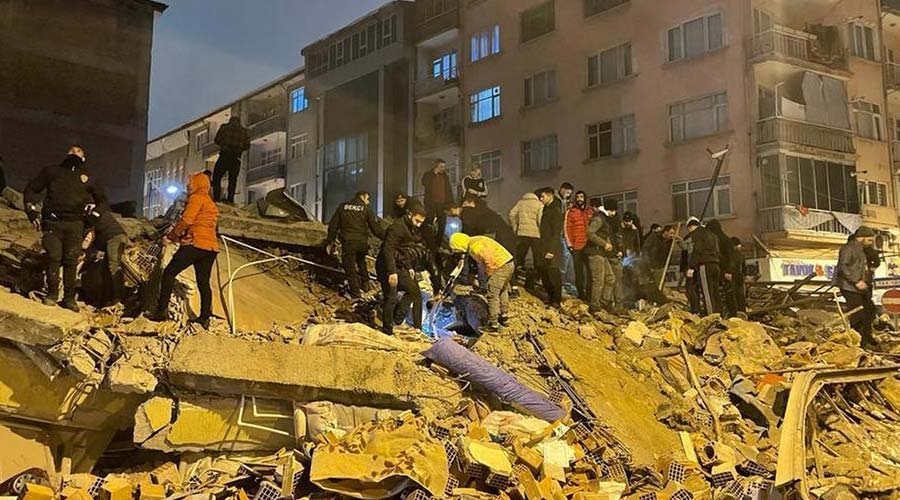Turkey and Syria are grappling with a terrifying humanitarian crisis after devastating earthquakes on Monday left more than 7,000 people dead across the neighbours, with an untold number trapped under the rubble of collapsed structures. Dozens of countries, including India, have pledged and sent humanitarian aid and rescue teams to the affected areas, even as winter conditions and a continuing civil war in Syria compound the plight of earthquake victims. Yet, the crisis and the world’s response hold valuable warnings and lessons that extend well beyond the two countries hit by the earthquakes. The prompt help that Turkey, in particular, has received from large parts of the world shows that the international community can — if it decides to — put geopolitics aside to help a country in need. However, it is equally clear that getting even a fraction of that aid to Syrian families will prove a much tougher challenge. The competing interests of Turkey, Iran, the United States of America and Russia in Syria have turned the conflict there into a frozen war. Many Syrian victims of the earthquake were already refugees in their own country, living in makeshift homes. Parts of earthquake-hit Syria are controlled by rebel groups; yet the country’s government insists that all international aid must be routed through its agencies.
While the Syrian government must work with aid groups to ensure that help reaches all parts of the country’s territory, regional players, such as Turkey and Iran, and global powers — the US and Russia — must reflect too. Their proxy war over Syria and the sanctions imposed on that country have complicated international rescue efforts, which require coordination with local authorities. Meanwhile, the scenes of death and despair in Turkey and Syria should also serve as an overdue reminder of the risks India faces. Prime Minister Narendra Modi referred to the Bhuj earthquake while speaking of the humanitarian crisis in Turkey and Syria. But more than two decades later, India’s national capital, which sits in a high-damage risk zone, is woefully ill-prepared for major earthquakes. A study in 2019 found that 90% of buildings in the city are not earthquake-resistant. This is likely not restricted to New Delhi and is the result of decades of criminally negligent governance across party lines. If India’s policymakers do not wake up now, they — not nature — would be to blame when a major earthquake next strikes the country.











